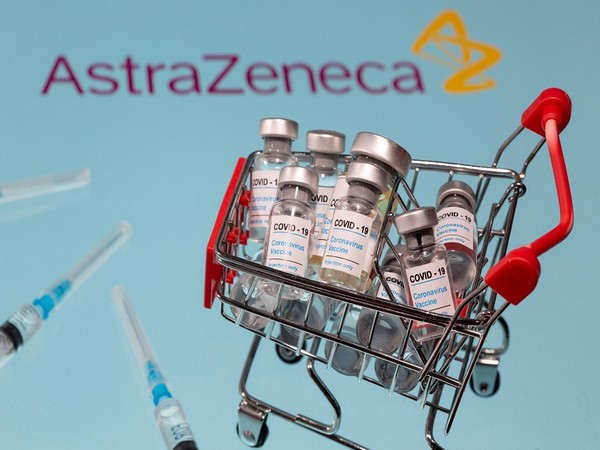Spain to widen AstraZeneca vaccine use as contagion slows
Spain will administer AstraZeneca's coronavirus vaccine to people aged 45 to 55 in the next phase of its national inoculation plan, the Health Ministry said on Wednesday, as new figures showed the third wave of infection receding further. The shot, which is approved for those between 18 and 55, is now being given to people in that age bracket with a high risk of contracting the virus, such as daycare workers and physiotherapists, as well as police, firefighters and teachers.

- Country:
- Spain
Spain will administer AstraZeneca's coronavirus vaccine to people aged 45 to 55 in the next phase of its national inoculation plan, the Health Ministry said on Wednesday, as new figures showed the third wave of infection receding further.
The shot, which is approved for those between 18 and 55, is now being given to people in that age bracket with a high risk of contracting the virus, such as daycare workers and physiotherapists, as well as police, firefighters and teachers. Most of Spain's highest-priority nursing-home residents and staff have already received two shots of the Pfizer-BioNTech or Moderna vaccines, which are now being rolled out to over 80-year-olds and medics.
Those shots will be given next to those over 70 and then over 60, the ministry said, while people under 60 with a high risk of serious COVID-19 infection will be next. Authorities have administered 2.7 million doses and 1.1 million people have received a full course.
Some regions may convert big venues into makeshift injection centres and hire retired doctors, students or pharmacists to help reach a target of inoculating 70% of the population by the end of summer. After a post-Christmas surge, which saw daily infections exceed 40,000, Spain's third wave is receding, with the two-week incidence falling to 350 cases per 100,000 people on Wednesday from 900 at the end of January.
The infection tally rose by 10,829 to 3.1 million on Wednesday, while the death toll increased by 337 to 66,316. Several regions have relaxed limits on business opening hours and the hospitality sector, though curfews remain in force across the country.
Madrid, which has Spain's loosest restrictions and has allowed customers to continue gathering inside bars and restaurants since last spring, has the country's second-highest infection rate of 490 cases per 100,000 people. Data from the regional government on Tuesday showed social gatherings were the leading cause of infection clusters since last June.
(This story has not been edited by Devdiscourse staff and is auto-generated from a syndicated feed.)
- READ MORE ON:
- Health Ministry
- Spain
- Moderna
- AstraZeneca
ALSO READ
33,686 Palestinians killed in Gaza offensive since Oct. 7, health ministry says
33,729 Palestinians killed in Gaza offensive since Oct. 7, health ministry says
33,843 Palestinians killed in Gaza offensive since Oct. 7, health ministry says
33,899 Palestinians killed in Israel's Gaza offensive since Oct. 7, health ministry says
34,049 Palestinians killed in Israel's Gaza offensive since Oct. 7, health ministry says










